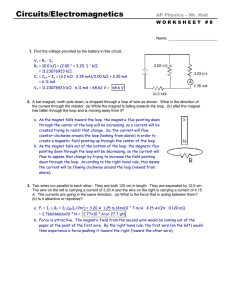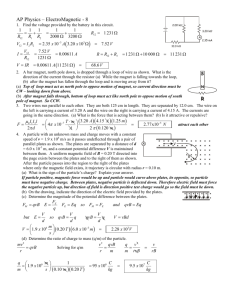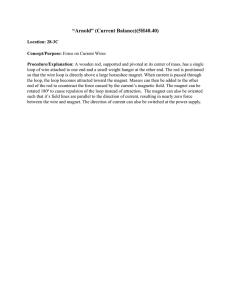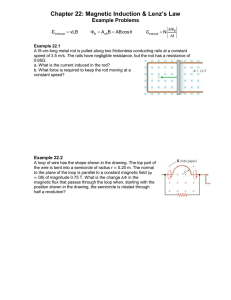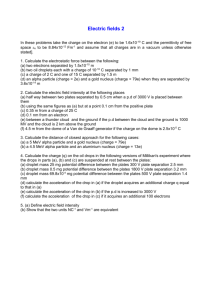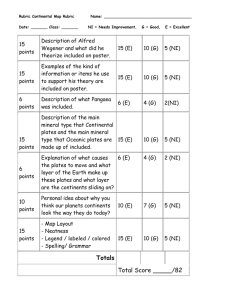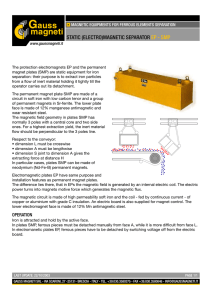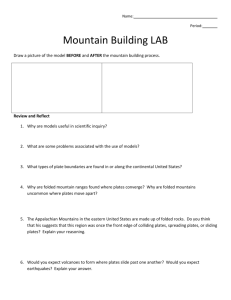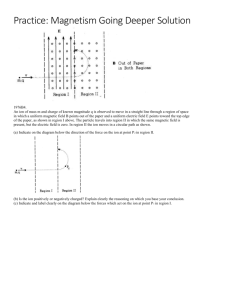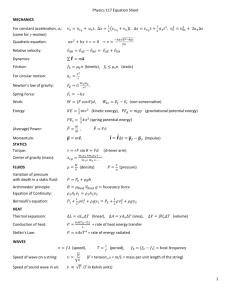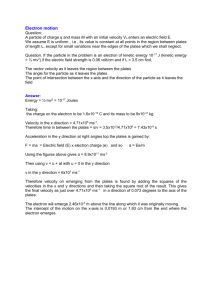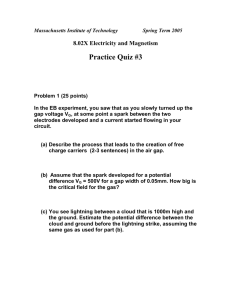Homework 1
advertisement
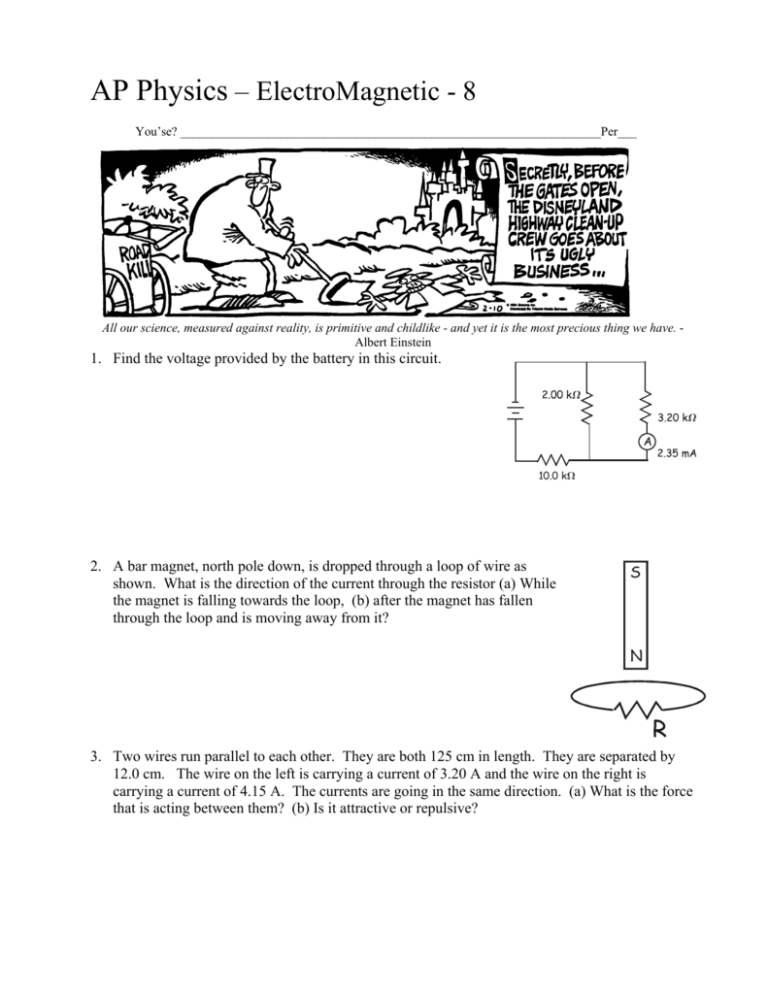
AP Physics – ElectroMagnetic - 8 You’se? ___________________________________________________________________Per___ All our science, measured against reality, is primitive and childlike - and yet it is the most precious thing we have. Albert Einstein 1. Find the voltage provided by the battery in this circuit. A 10.0 kW 2. A bar magnet, north pole down, is dropped through a loop of wire as shown. What is the direction of the current through the resistor (a) While the magnet is falling towards the loop, (b) after the magnet has fallen through the loop and is moving away from it? S N R 3. Two wires run parallel to each other. They are both 125 cm in length. They are separated by 12.0 cm. The wire on the left is carrying a current of 3.20 A and the wire on the right is carrying a current of 4.15 A. The currents are going in the same direction. (a) What is the force that is acting between them? (b) Is it attractive or repulsive? 4. A particle with an unknown mass and charge moves with a constant speed of v = 1.9 x 106 m/s as it passes undeflected through a pair of parallel plates as shown. The plates are separated by a distance of d = 6.0 x 10-3 m, and a constant A V potential difference V is maintained between them. A uniform magnetic field of B = 0.20 T directed into the R page exists between the plates and to the right of them as shown. After the particle passes into the region to the right of the plates where only the magnetic field exists, it trajectory is circular with radius r = 0.10 m. (a) What is the sign of the particle’s charge? Explain your answer. (b) On the drawing, indicate the direction of the electric field provided by the plates. (c) Determine the magnitude of the potential difference between the plates. (d) Determine the ratio of charge to mass (q/m) of the particle. 5. A force is applied to a conducting rod so that it slides across a pair of conducting rails. A uniform magnetic field of 1.25 T is directed into the page. The rails are separated by 25.0 cm. The rod is moving at a constant velocity of 12.2 m/s. The resistance of the system is 2.50 . Find the following: (a) The induced emf in the moving rod, (b) the direction of the current through R, (c) the current through R, (d) The magnitude of the applied force needed to keep the rod moving at constant velocity, (e) The power dissipated by the resistor. l R Fm x v FApp
